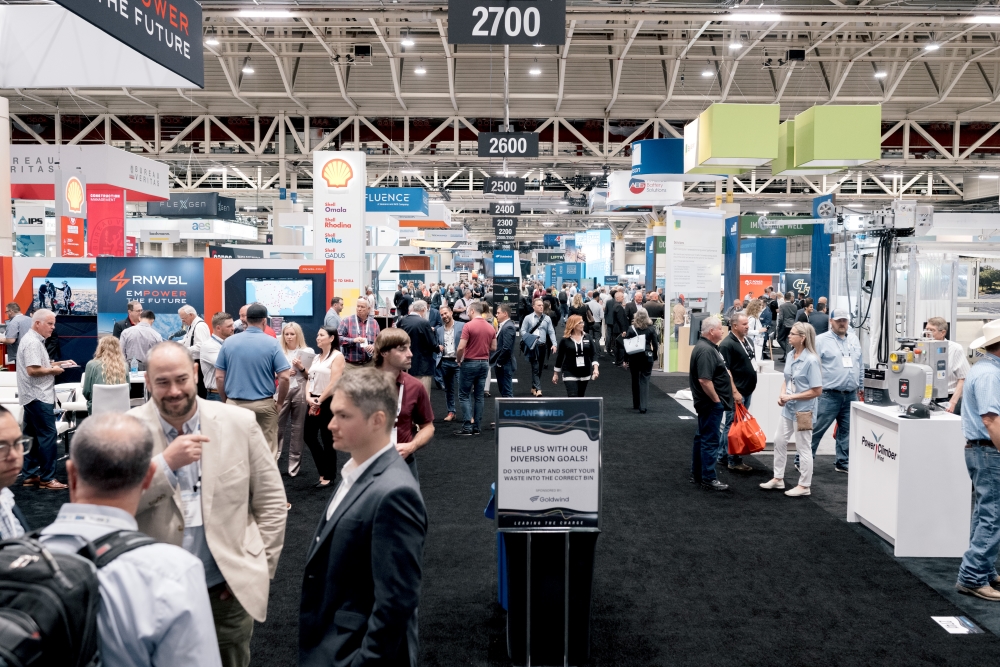How to avert a 'clean-energy crisis'
Cross-posted from National Journal's Energy & Environment Expert Blog.
If clean energy is headed for a crisis in America, it will be a crisis of our own making. Wind energy is humming along right now, creating one of the fastest growing manufacturing sectors and accounting for more than a third of all new electric generating capacity across the U.S.
The key to that growth is the stability of the federal Production Tax Credit (PTC). Congress now has a chance to extend that key incentive for wind and avert this crisis before it ever happens.
It’s clear that the PTC, which was intended to stimulate demand for wind power and help the wind industry drive its cost of energy down through increased volume, manufacturing efficiency, and competition, is succeeding.
Due to continuing technological innovation, wind energy costs have fallen below the costs of most new conventional sources, and are close to cost-competitive with new natural gas generation, even at today’s unsustainably low natural gas prices.
Wind-generated electricity is an especially good deal right now for consumers.
For example, Alabama Power, a subsidiary of the Southern Company (a major electric utility), just saved its customers money by signing a purchase agreement for wind power. According to the utility’s staff, “The delivered price of energy from the wind facility is expected to be lower than the cost the Company would incur to produce that energy from its own resource (i.e. below the Company’s avoided costs), with the resulting energy savings flowing directly to the Company’s customers.” [Alabama Public Service Commission filing, Sept. 9, 2011, http://bit.ly/vnlHzI]
And a new study by the Lawrence Berkeley National Laboratory finds U.S. wind turbines have come down in cost by a third since 2008 [October 2011]. Reasons include innovative technology, stable tax policy, and a sharp increase in U.S.-based manufacturing — which is creating good jobs.
Another report, from London-based Bloomberg New Energy Finance (BNEF) said land-based wind farms will be “fully competitive” with conventional electricity sources by 2016. BNEF said it sees the cost of electricity from land-based wind turbines declining 12 percent by 2016 “thanks to a mix of lower”cost equipment and gains in output efficiency,” adding, “The best wind farms in the world already produce power as economically as coal, gas and nuclear ”¨generators; the average wind farm will be fully competitive by 2016.”
BNEF lead wind analyst Justin Wu added, “The public perception of wind power tends to be that it is environmentally friendly, but expensive and intermittent. That is out of date in the best locations, where generation is already cost”competitive with fossil fuel electricity, and that will be the case for the majority of new onshore turbines installed worldwide by 2016.”
This is why extending the PTC to 2016 is so important.
The PTC has been supported on a bipartisan basis in the past, and continues to receive support from both sides of the aisle today. Recently, a bill to extend it for four more years, H.R. 3307, the “American Energy Production Tax Credit Extension Act,” was introduced by Congressmen Dave Reichert (R-Wash.) and Earl Blumenauer (D-Ore.). H.R. 3307 deserves the wholehearted support of every member of Congress. It will deliver tremendous benefits to our state and nation.
Urgent action on this legislation is needed. With the threat of the PTC coming to an end, the companies that build wind farms are not making plans and American manufacturers are not receiving orders. Job layoffs have started already. The wind industry is facing the recurrence of the boom-bust cycle it has seen in previous years when the PTC was allowed to expire briefly before being renewed by Congress. In the years following expiration, installations of new wind turbines dropped between 73% and 93%, and many jobs were lost. Such a dramatic drop in business is hard on companies and workers and their families at the best of times, but it will be a very punishing blow in the current economy.
As families across our country struggle with unemployment, and as businesses are cutting back just to survive, it’s past time for Congress to focus its ideas and efforts on proposals that will create jobs and get our economy moving again. Extending this key tax incentive for wind and other forms of renewable energy generation is one of the best ways to spur economic development and create the good jobs we need.
A vote for a PTC extension is a vote for growing clean, homegrown, affordable energy resources and badly needed new American manufacturing jobs.

